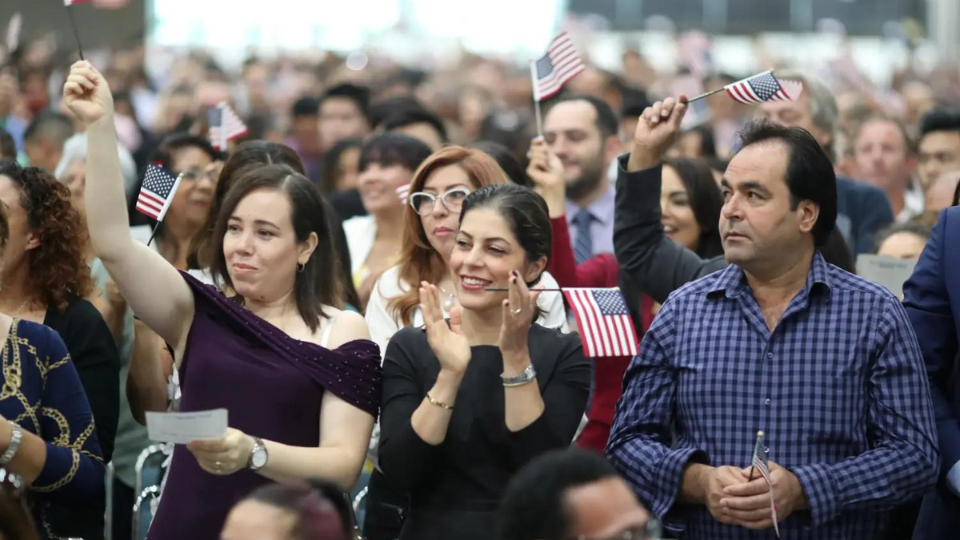
Click on the play button to listen to the audio version.
I was born in East Los Angeles in the sixties. My parents met at Roosevelt High School in Boyle Heights and were married shortly after they graduated. I was their firstborn.
My grandfather on my mother’s side was a Pentecostal minister and the former national president of the Apostolic Assembly Church. When I was a kid, my family would go to my grandfather’s church in the El Sereno area of Los Angeles every Sunday and sometimes during the week. It was a strict upbringing, but I have positive and vivid memories of that time.
My grandfather gave his sermons in Spanish because 99% of his members were Spanish-speaking Latinos from Mexico and Central America. A high percentage of them were undocumented, and I got to know many of them. I witnessed firsthand their optimism and their pain. Some ventured into the dark side and got involved with drugs and gangs. Still, the large majority of them were hard-working people of high moral character who lived in the shadows and were often mistreated by employers and practically everyone else.
It was my first glimpse of how poorly undocumented people are treated, including by other Latinos, and it was something that stuck with me. Our legal system and the fundamental rights that everyone has in this country are not available to undocumented individuals. They can’t file a complaint to the Department of Labor if their employer exploits or abuses them. They can’t safely go to the police if they are robbed or assaulted. People blatantly treat them like dirt; there is little they can do about it. It made me feel bad for them, but I learned early on that some people need to feel superior to other human beings. I guess it makes them feel better about themselves, and undocumented people are at the bottom rung of our social ladder.
It was this experience that shaped my opinions about immigration and undocumented immigrants. I learned that, as a rule, people don’t come to this country without legal documentation because they are bad people who want to take advantage of our social systems; they come because they are in desperate need and because there are jobs here waiting for them.
Let me repeat that. Undocumented immigrants risk their lives coming to this country because there are people here eager to hire them. Don’t let the politicians on both sides of the aisle fool you. Undocumented immigrants are here because we need them, plain and simple.
Matthew Desmond writes in his book, “Poverty, by America”, that poverty exists in the wealthiest country in the world, not because we don’t have the means to resolve it, but because the wealthy in America benefit from it. The same applies to illegal immigration. We have the capacity to reduce it drastically, but we don’t because the rest of us benefit from it. We benefit in the form of ultra-cheap labor. The data clearly shows that illegal immigration doesn’t cost us money; it saves us money.
Don’t get me wrong, I don’t support illegal immigration; I detest it, but I don’t look down on undocumented immigrants. I have empathy for them. They deserve to be treated with dignity, just like everyone else.
People who demonize undocumented immigrants today do it to score political points or, as I mentioned earlier because it makes them feel better about themselves. It’s sad because the system is at fault, not the people. It’s why I sat down almost ten years ago with Jerry Ascencio and wrote the play “53 Million and One”. We attempted to use art to bring a little humanity to the situation.
The lesson I learned at my grandfather’s church is that being a United States citizen doesn’t make me better than anyone else; it makes me lucky. I was lucky to be born in this country. I was lucky to be born healthy to parents who loved me. Not everyone is as lucky as I am; in fact, most people aren’t.
Eliminating illegal immigration is a goal that everyone should support, but doing so will be much different than politicians would have us believe. It won’t be as easy as building a wall, but it won’t come without cost either, not just in the form of security and enforcement but in the form of increased prices for almost everything.
We currently have 11 million unfilled jobs in America. Ending illegal immigration will either dramatically increase that number and have massive disruption to our economy, or we will have to increase legal immigration and pay people a lot more money to do the same jobs. It’s a complex issue requiring sacrifice and strong leadership to resolve. In my view, the first step is to be kind to the people less fortunate than us.
